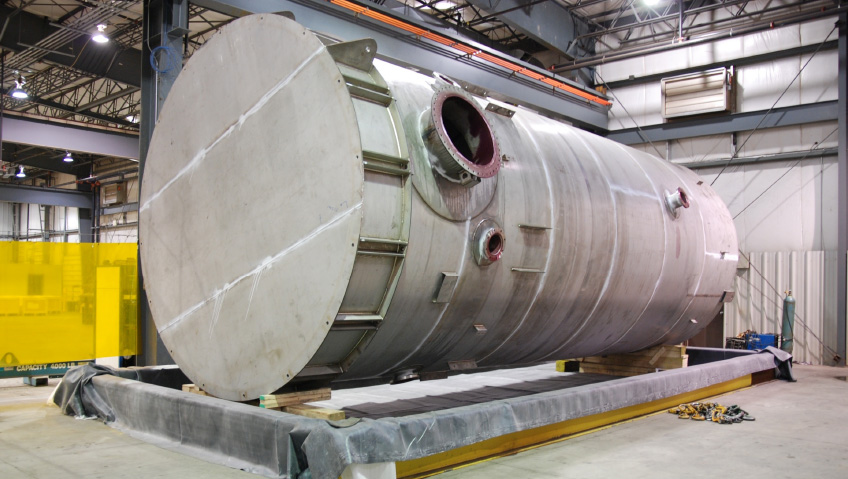Living in a consumer-driven society means making numerous decisions every single day regarding purchases made in both a personal and professional capacity. With the growing awareness of and appreciation for sustainable products from environmentally conscious companies, customers are increasingly putting their money where their morals are and moving toward buying green —and businesses are learning how to step up to meet the demand.
While spending money is inevitable, mindless consumption is not. Customers are increasingly educating themselves on how companies and their practices affect the planet, both negatively and positively. From the raw material stage to manufacturing, packing and shipping, to appearing on a store shelf, every step impacts the environment, including the essential afterlife of that product, the waste it produces and how it’s recycled after it has outgrown its intended purpose and usefulness. While customers of course do and always will consider price and value in their purchase decisions, more and more they are looking to buy based on ethical considerations.
Conscious consumerism means just that: being mindful about purchases – buyers being aware, taking the time to research and understand what they’re bringing into their lives before they open their wallets. This, of course, means certain companies and businesses will fare much better in the quest for responsible consumption. From food to clothing to cars, as the inevitable awareness of global warming seeps into every facet of our lives, buying better means helping to protect the earth now and for generations to follow.
When buying practices are driven by a commitment to making purchasing decisions with a positive social, economic, and environmental impact, conscious consumerism can also be viewed as environmentally and socially aware customers voting with their dollars and avoiding unethical companies.
This also includes a growing awareness of the ethical treatment of animals and the food we eat, as people gravitate to organic produce and regenerative farming that leaves less harmful waste in the soil and to free-range chickens who live their lives as unstressed as possible, producing eggs that customers feel better about including in their diets. With information readily available at the click of a mouse, customers are researching and making educated choices about every aspect of their purchases.
Companies and businesses play a vital role in drawing in informed consumers by embracing transparency in their production and advertising, letting consumers know exactly where they source their material from, the practices used in production, and if their labour is ethical. Sharing this information with customers can go a long way to building a trusting, long-lasting relationship resulting in more business for the company and a better, healthier planet for everyone.
With more than 73 percent of global consumers saying they would “definitely or probably change their consumption habits to reduce their impact on the environment,” according to data analytics company Nielsen, it only makes sense for companies to make the necessary changes that benefit both customers and the climate.
Millennials in particular seem to be more willing to pay for environmentally friendly products over more harmful alternatives, but it’s not just the younger generation who is paying attention: consumers in the U.S. alone are expected to spend $150 billion on sustainable products by this year, according to Nielsen.
Consumers are also increasingly demanding transparency from the companies they frequent: before 2013, only 20 percent of S&P 500 companies chose to share environmental, social, and governance (ESG) information, so finding that information was a long and difficult process. However, in 2019, as a direct result of customer demands, that number rose to 90 percent publishing sustainability/responsibility reports. In short, customers want — and deserve — to know what companies are selling.
According to a study by IBM, 19,000 customers polled from 28 countries — ranging from Gen Z to baby boomers with ages ranging from 18 to 73 — have some very strong thoughts about how individual shopping ideals are changing. North American respondents increasingly prefer sustainable brands, while 69 percent of environmentally aware purchasers are willing to pay a premium for recycled products. Almost 80 percent of North Americans want to know the origin of their products, and 69 percent would pay a premium for brands that provide this information.
Globally, consumers want products that are not only eco-friendly, but transparent and reflective of their personal values, and they can now find this information via the internet and social media where they can “follow” brands and stay up-to-date on their individual practices. Businesses who want to keep this savvy segment of clients on their side know it’s smart to consider changing. And there are plenty of ways companies can make alterations, big and small, to help both the environment and the conscious consumer while embracing what best reflects the business’ brand and values.
Creating a sustainable leadership team is a smart way to bring those values into the company, particularly when engaging people who are passionate about sustainability. Educating employees on a green business platform and what they can do to help can also create more understanding and awareness. Studying what other companies are doing to both adopt sustainable practices and make an enduring difference in the world through eco-friendly practices is advantageous, along with making some serious and hard decisions about your supply chain: examine the companies you buy products and services from. Are they sustainable? Is the packaging you use recycled or recyclable? If not, consider looking at viable alternatives wherever possible.
Another area to examine is overall recycling practices and how much of your waste goes to landfill. If you strive to be a sustainable business, working to minimize any potential negative impact on the environment means constant re-examination of work practices, eco-friendly initiatives, social and sustainable alternatives, and strategies that work for the company at large.
Even businesses that are already utilizing sustainable practices can make improvements to reduce environmental impact. For companies still on the learning curve, there are plenty of ways to make even slight alterations with a big difference, and potentially draw in more customers. Making sustainability a core mission within the organization can also go a long way to bringing employees on board with new platforms and practices.
Whether you’re a large or small business, being resourceful in your examination of sensible budgets, achievable goals and strategies through communication and education can make a difference no matter the merchandise. The good news is that many companies around the world are striving to make these very improvements in the area of green practices.
A 2017 survey by global management consulting group McKinsey & Company found that, “Nearly six in 10 respondents say that their organizations are more engaged with sustainability than they were two years ago,” with more than eight in 10 respondents working in consumer packaged goods, and three-quarters of those in infrastructure saying the same. Seventy percent of respondents said that their companies have some form of sustainability governance in place, compared to just 54 percent three years earlier.
As more and more consumers become aware and genuinely concerned with what they’re spending their hard-earned money on, it becomes more important for businesses to respond likewise with practices that embrace a true interest in how business is done, and how it adheres to global concern and sustainable product. Creating a positive relationship with both customers and potential customers is the goal of any business, but doing it through concern for the environment and workers benefits not only the bottom line, but the world at large. Creating an atmosphere of sustainability goes a long way to forging trusted and reliable partnerships for years to come, with a transparency of information that customers will appreciate.
In the end, both businesses and consumers have the ability — and the proven desire — to make better, more sustainable choices. This April is Earth Month, and there’s no better time to start engaging in wiser, greener and more sustainable choices in all areas of life.






